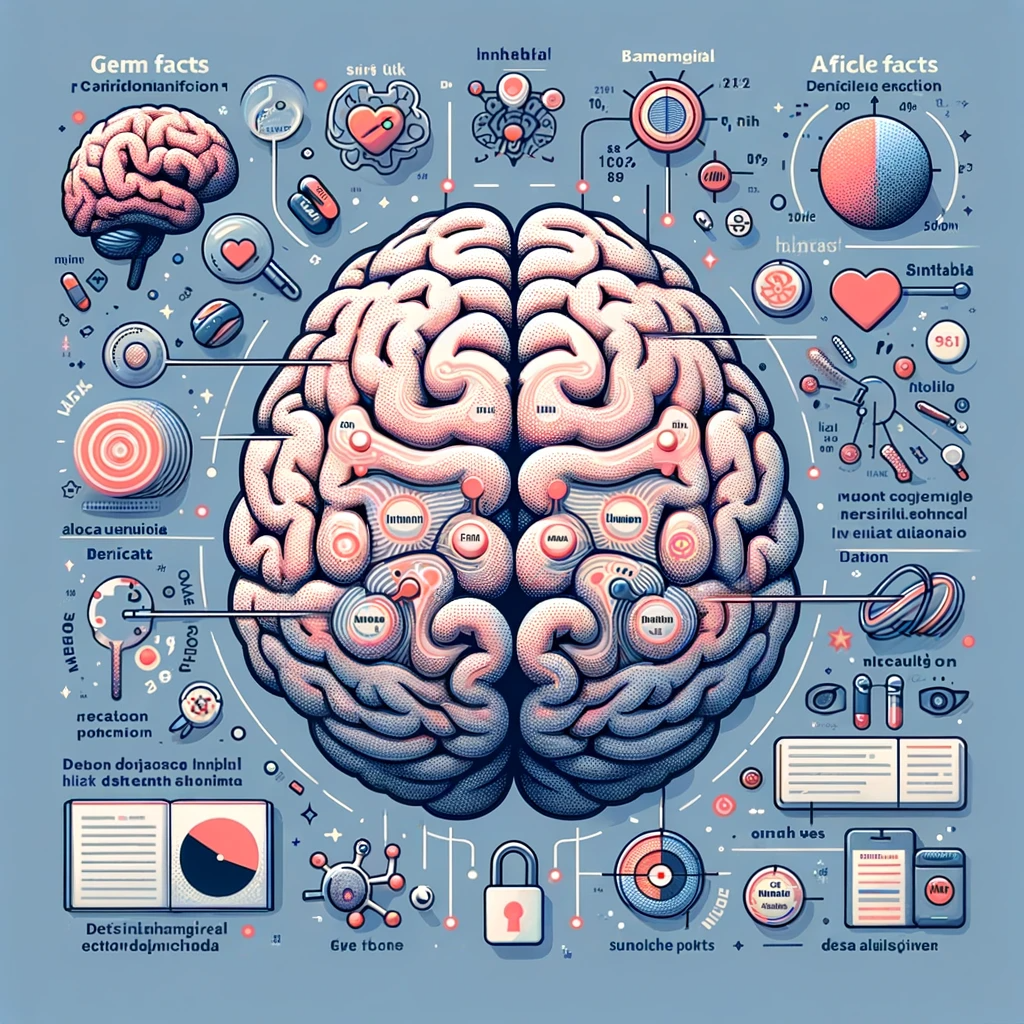10 Astonishing Brain Facts to Help You Stay Ahead in Life
Unlocking the Mysteries of the Brain
Imagine holding the universe in your hands, yet it only weighs about 3 pounds. That's your brain, an enigma wrapped in a mystery. Recent breakthroughs by top neuroscientists have peeled back layers of this complexity, offering us a glimpse into its fascinating functions. Let's embark on a journey through these mind-blowing revelations.
Accountability and Awareness Questions:
Reflect on these questions, as you read these pretty cool brain facts, they’re bread crumbs to the next level of your life.
Reflection on Free Will: How often do I challenge my own thoughts to ensure they align with my goals and values?
Imagination Check: What new skills or knowledge would I like to explore to enhance my brain's capabilities?
Control and Responsibility: In what areas of my life do I feel in control, and how can I improve in those where I don't?
Resilience and Adaptation: How do I cope with challenges and setbacks, and what can I learn from nature's resilience?
Mindful Focus: How can I better focus my attention on positive and productive thoughts to cultivate a healthier mind?
1. The Illusion of Free Will
Neuroscientists have discovered that even when we think we're exercising free will, our brains often create narratives that suggest otherwise. This highlights the importance of conscious imagination and taking ownership of our thoughts to avoid being misled by fear or false beliefs. If you don’t feed your mind positive thoughts, It’ll naturally provide negative ones.
Our brains often narrate stories that challenge the concept of free will. This discovery underscores the power of positive thinking and the need to take charge of our own thoughts.
2. Reading a Rat’s Imagination
In a groundbreaking study, neuroscientists recorded a rat's dream, marking a step closer to understanding and potentially influencing the human thought process. This could pave the way for extraordinary developments, such as uploading skills and memories, one step closer to "The Matrix."
Recording a rat's dream brings us closer to understanding, and possibly manipulating, the human thought process, hinting at a future where we might download skills and memories.
3. The Elephant’s Brain Power
Elephants have evolved large brain regions to control their complex trunks. Elephant trunks are super complex and have many different muscles in them, it's so complex they need a large brain, bigger than an humans to account for all the neurons and cells to control the sophisticated trunk. Food for thought– Everything in your brain is “in control” in some way shape or form. So if you feel like you’re not in control of your life right now. Just ask, what would an elephant do if they couldn’t control their own trunks.
Elephants’ large brains, necessary to control their intricate trunks, remind us that every part of our brain has a purpose, encouraging us to take control of our lives.
4. Zebrafish can regrow their Spinal Cord
Zebrafish have the remarkable ability to regenerate their spinal cords, a trait shared with many amphibians and fish. This discovery opens up possibilities for understanding spinal repair and regeneration in humans. So, if you cut their spinal cord and leave it alone for a week. It’ll grow back and swim, hop, skip away like nothing happened.
5. Lifelong Neurons
Most neurons you're born with will accompany you throughout life. Keeping these neurons healthy is crucial, requiring regular physical activity and mental exercises. AKA mindfullness exercises such as journaling, frequent thought-experiments, brain teasers, brushing your teeth with the opposite hand, etc..
6. The Necessity of Forgetting
Our brains need to forget to function effectively. We can't possibly remember every detail we encounter. This fact emphasizes the need for mindful focus and the careful allocation of our mental and physical energy. We pay attention to what we focus on, and we focus on what we think about. So, think positively about yourself and your brain will slowly forget about the negative confirmation bias.
7. Split-Brain Phenomenon
There was an experiment in the '60s on the phenomenon called ‘split brain’, which is a result of the corpus callosum that connects the two hemispheres (right/left side of the brain) being severed or disconnected. In this condition, there are two separate cognitions in the same individual. Twice the thoughts within one person. Which means they had two consciousnesses.
8. Hemi-Neglect in Stroke Patients
Stroke patients who suffer damage to their brain often experience hemi-neglect, ignoring one side of their brain. This phenomenon affects not only their perception but also their memory, as seen in their one-sided interactions with the world. One side of your brain is logical, the otherside illogical. For example, maybe they won’t shave one half of their face. If you ask them to draw a flower, they’ll only draw the petals on one side. They'll only eat the food off one half of the plate.
9. The Impact of Bilingualism on Brain Structure
Studies have shown that people who speak more than one language have a more robust corpus callosum – the part of the brain that bridges the two hemispheres. This bilingual advantage means enhanced cognitive flexibility, better problem-solving skills, and even delayed symptoms of dementia. It demonstrates the brain's remarkable ability to rewire and adapt based on linguistic experience. So, start learning a second language.
10. The Brain's 'Default Mode Network' (DMN)
Neuroscientists have discovered a unique brain network called the Default Mode Network, which becomes active when we're not focused on the outside world, like during daydreaming or self reflection. This network is crucial for self-reflection, imagination, and future planning. It's intriguing to note how our brain is carefully wired and intertwined for both focused activity and reflective thought processes.
To Close Out: The Brain's Boundless Potential
These ten facts from leading neuroscientists highlight just how extraordinary our brains are. From the way we perceive free will, to the brain's ability to heal and adapt, each point underscores the limitless potential and resilience of the human brain. Understanding these aspects not only satiates our curiosity but also opens doors to unprecedented advancements in neuroscience and mental health.
Self Accountability and Awareness Questions:
Reflection on Free Will: How often do I challenge my own thoughts to ensure they align with my goals and values?
Imagination Check: What new skills or knowledge would I like to explore to enhance my brain's capabilities?
Control and Responsibility: In what areas of my life do I feel in control, and how can I improve in those where I don't?
Resilience and Adaptation: How do I cope with challenges and setbacks, and what can I learn from nature's resilience?
Mindful Focus: How can I better focus my attention on positive and productive thoughts to cultivate a healthier mind?



